Majestic 100-pound moonfish washes up on Oregon beach
Experts were surprised to find the fish, also known as an opah, in the area.
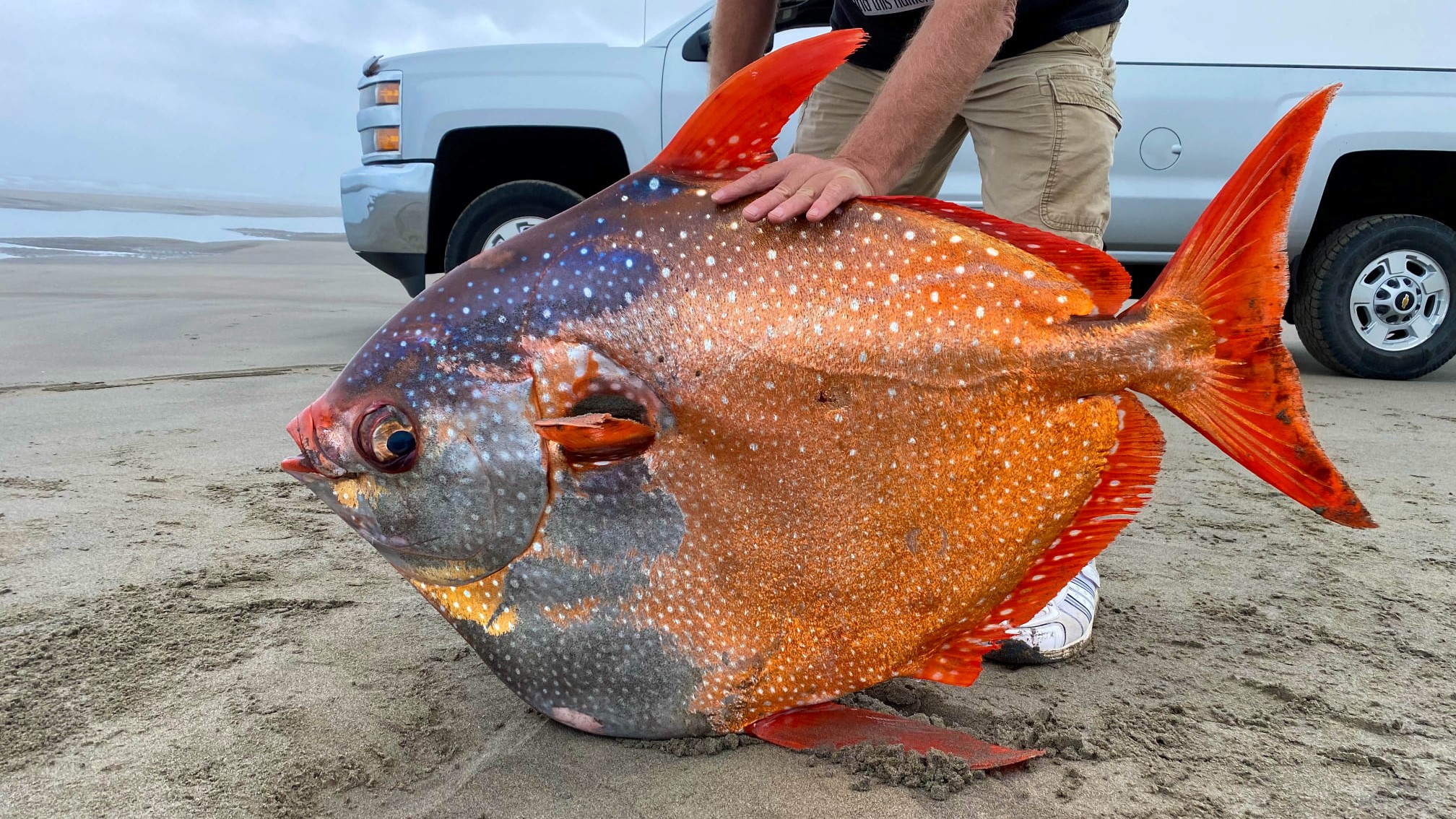
Beachgoers in Oregon were recently wowed by the dazzling remains of an exotic 100-pound (45 kilograms) fish after it washed up hundreds of miles from its normal habitat.
The 3.5-foot-long (1 meter) opah, also known as a moonfish, was discovered on the shore of Sunset Beach in northern Oregon at 8 a.m. local time on July 14. The colorful creature had a mix of silvery and bright reddish-orange scales across its flattened circular body, with occasional white dots and glinting, golden eyes.
After receiving photos of the beached fish from a passerby, staff from the nearby Seaside Aquarium recovered the remains. Visitors at the aquarium were later treated to seeing the rare specimen up close and personal.
Related: 13 bizarre things that washed up on beaches
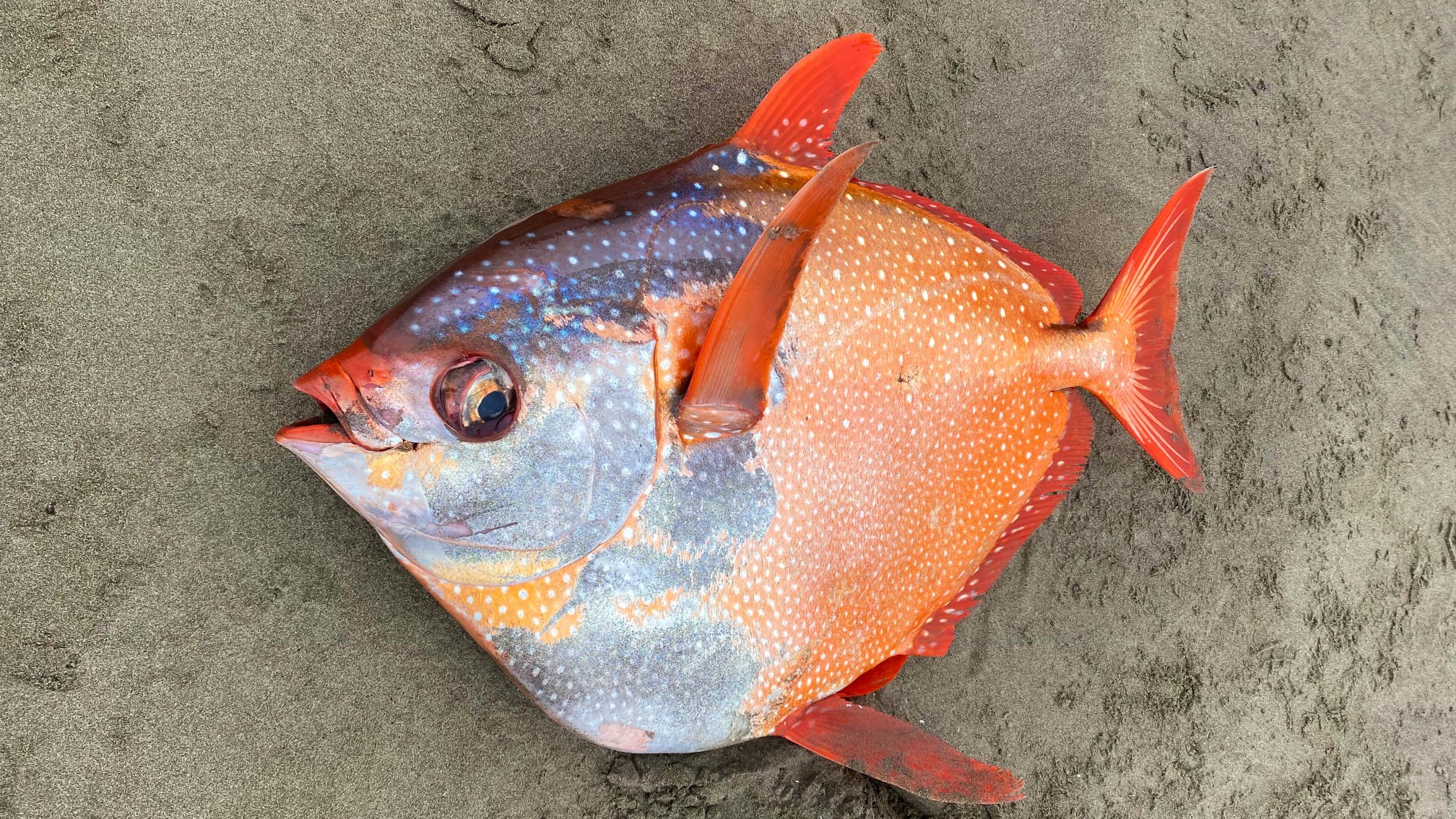
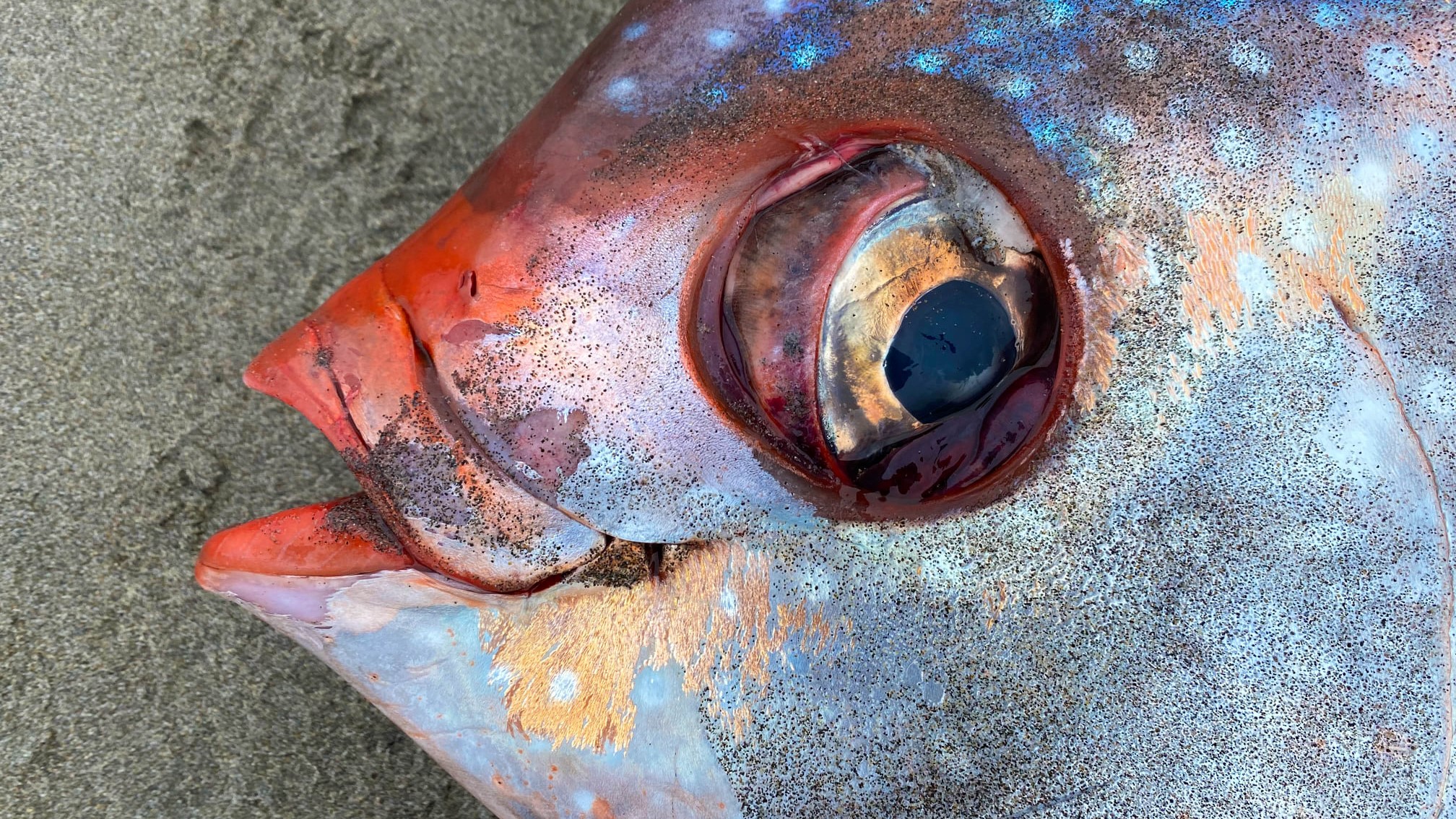
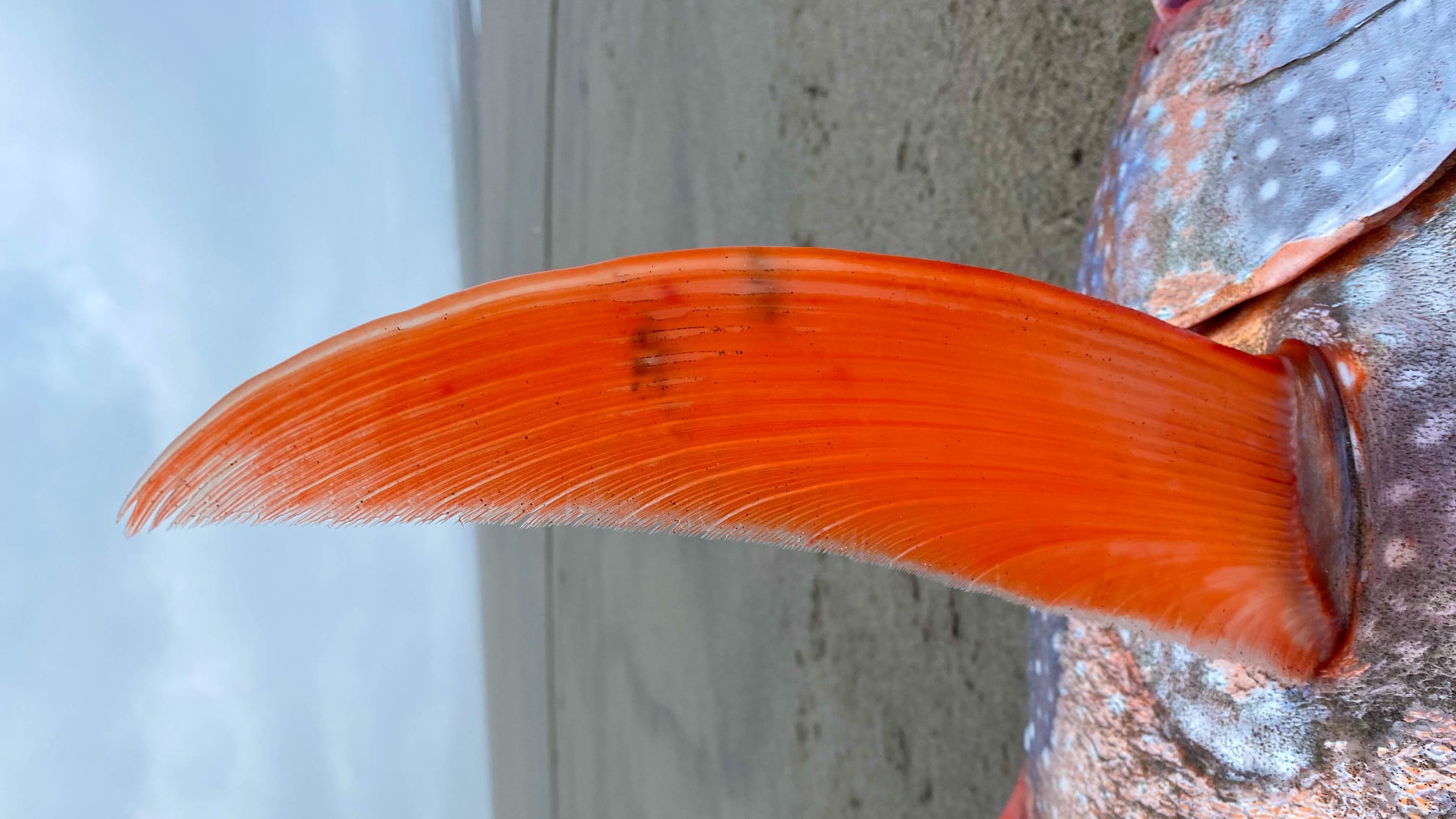
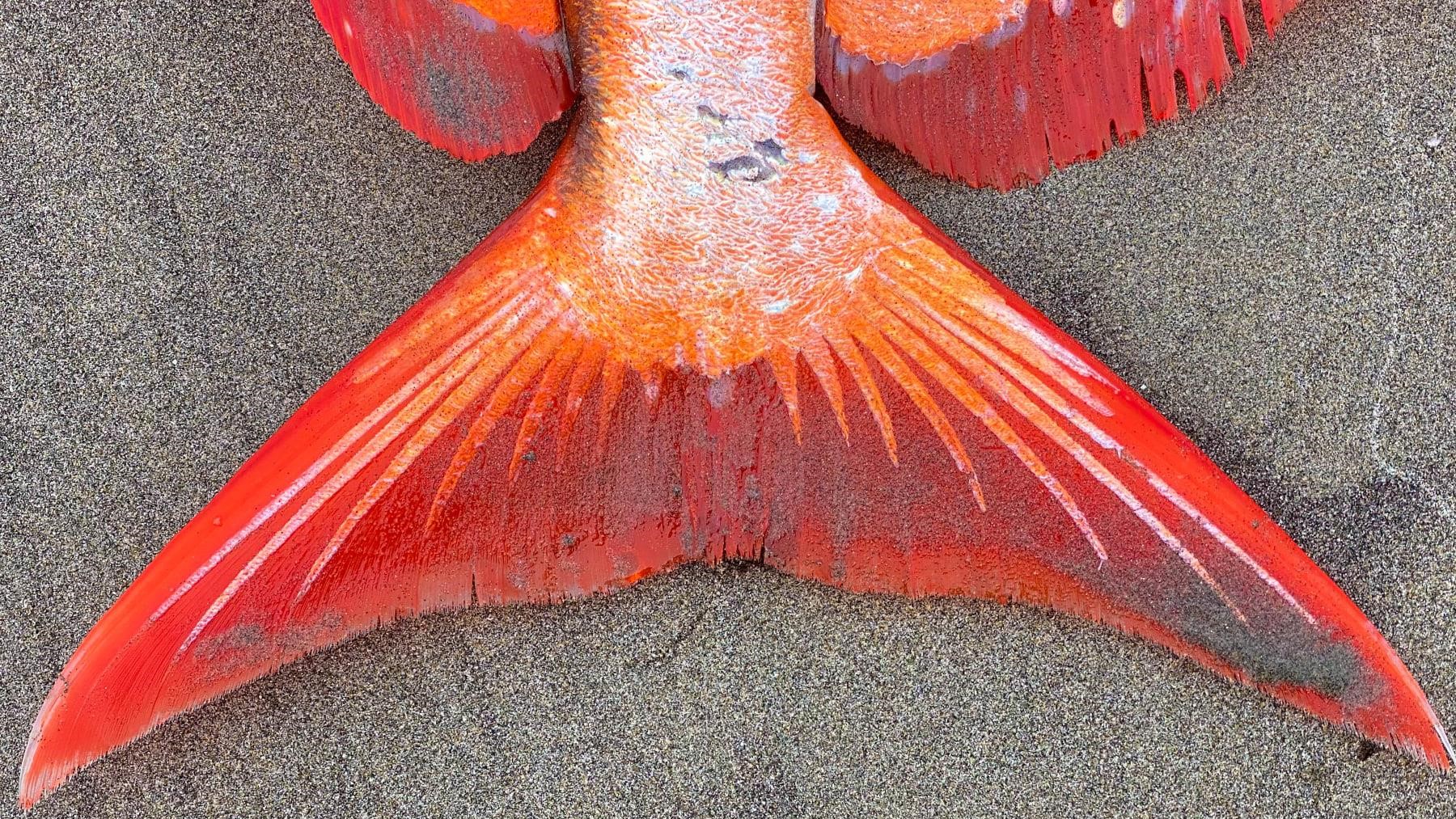
It is not clear what happened to the opah, but it was in "great condition, meaning it was close to shore when it died," Tiffany Boothe, assistant manager at the Seaside Aquarium, told The Washington Post.
Opah are pelagic fish, meaning they live in the open ocean, but are commonly found off the coast of California and around Hawaii, according to the National Oceanic and Atmospheric Administration (NOAA). However, it is extremely rare to find one this far north. "I wouldn't expect an opah that size to normally be off Oregon," Heidi Dewar, a research biologist with NOAA Fisheries who was not involved in the recovery, told the Post.
One possible explanation is that warming ocean temperatures, caused by climate change, are forcing opah to leave waters that have become too hot and move into once-colder waters. They have been known to travel long distances in response to environmental conditions, according to NOAA.
Get the world’s most fascinating discoveries delivered straight to your inbox.
"We are seeing some marine organisms moving northward as ocean temperatures increase," Dewar said. However, there is not enough data to confirm that warming seas drove the fish northward, she added.
In 2015, a study led by NOAA found that opah are the only fully warm-blooded fish alive today, Live Science previously reported. Unlike other ectothermic fish, opah are endothermic and can control their body temperatures to stay warm, for instance, in the deep sea.
Little else is known about their biology, although scientists think opah can grow to over 6 feet (1.8 m) and weigh more than 600 pounds (272 kg), according to the Seaside Aquarium.
Although opah are not targeted by fishers, they have become an increasingly common bycatch for swordfish fisheries, and their rich meat has become a popular seafood But because a population assessment has never been carried out, there is no way to know if opah populations are stable, and if fishing has had a serious impact on their numbers, according to NOAA. It is also unclear how many species of opah there really are.
The beached opah in Oregon has been frozen by the Seaside Aquarium for the start of the next school year, when a group of lucky children will be given the opportunity to dissect it. After this educational exercise is complete, researchers will carry out further analysis of the hefty fish.
"Not a lot is known about these beautiful fish," Boothe said, "so anything we can learn will be beneficial."
Originally published on Live Science.

Harry is a U.K.-based senior staff writer at Live Science. He studied marine biology at the University of Exeter before training to become a journalist. He covers a wide range of topics including space exploration, planetary science, space weather, climate change, animal behavior and paleontology. His recent work on the solar maximum won "best space submission" at the 2024 Aerospace Media Awards and was shortlisted in the "top scoop" category at the NCTJ Awards for Excellence in 2023. He also writes Live Science's weekly Earth from space series.
 Live Science Plus
Live Science Plus





